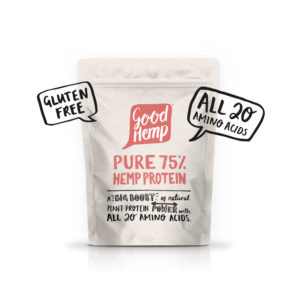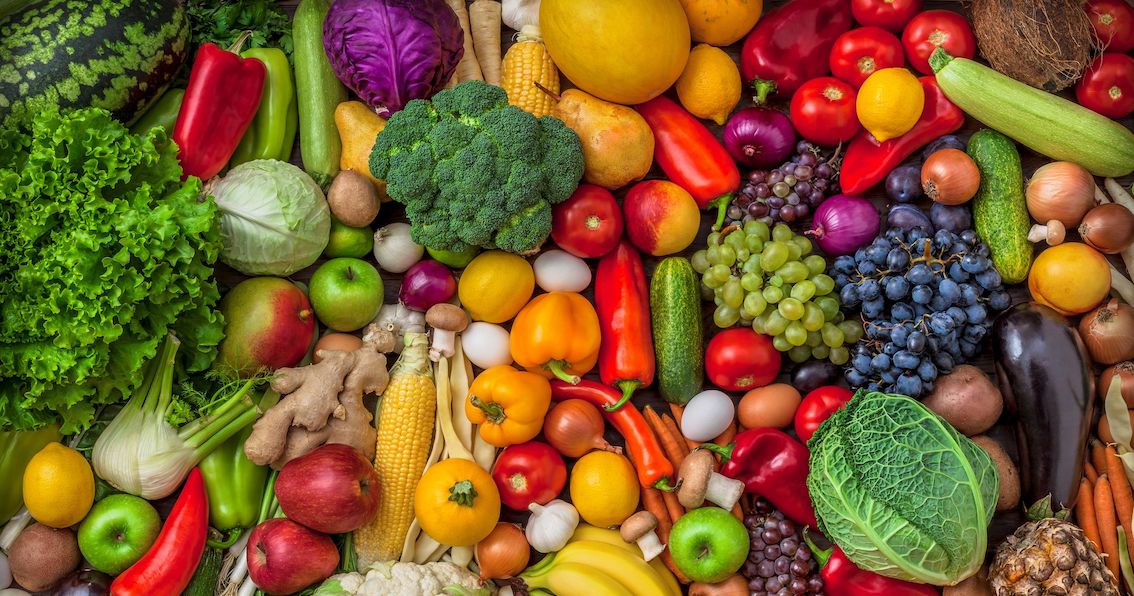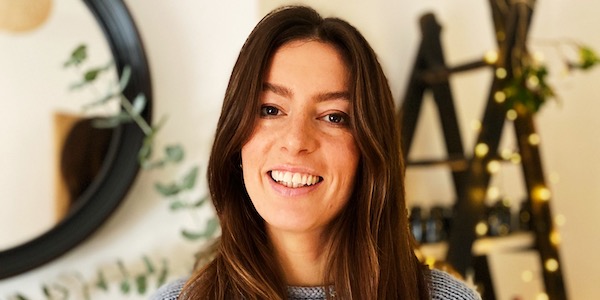The Food You Need To Change Your Mood
You’re probably finding yourselves in the kitchen now more than ever, whether that’s making sourdough (as a nation, we’ve all pivoted to baking), eating pancakes for breakfast, lunch and dinner or constantly returning to the fridge for snacks (because what else is there to do?). But the relationship between food and mood is an important one and it’s about much more than just getting hangry when you’ve not had your 3pm sugar hit (guilty).
It’s easy to default to pasta as the ultimate comfort food and indulge in big pots of coffee to get through the day. Especially when our resources are limited, and we need to shop for groceries online more, our diet might be a little different than usual. For some that might be good – more home cooked meals and less Pret sandwiches for lunch – but it’s good to be aware of the food that makes our brains feel good.
We spoke to nutritional therapist Grace Kingswell, about the foods we need to help lift our moods and keep anxiety at bay.
How is what I eat going to affect my mood?
Grace is big on the link between diet and mental health. Known as the gut-brain axis, Grace explains that “our gut (intestines) is constantly talking to our brain and vice versa. If you throw bad food into your body your gut will get mad at your brain and that will manifest in anxiety and oftentimes, depression.” The billions of “good” bacteria that are found in your gut help prevent inflammation and improve how well you absorb nutrients from your food and activate the neural pathways between the gut and the brain. Not only that but 95% of your serotonin – our happy hormone that helps regulate sleep and mood – is produced in your gut, meaning there’s a direct link between the food you eat and your happiness levels.
What constitutes happy food?
As much as a pizza might make you feel all warm and fuzzy inside, studies comparing a Eastern diet to a typical ‘Western’ diet show that the risk of depression could be 25-35% higher. Why? Western diets tend to have more processed food (hiya bread, pastries and cereals) whereas Eastern diets traditionally are full of grains, soups, fresh vegetables, as well as fermented foods that your gut loves. Reaching for more fruit and veg is an obvious go-to – a recent survey of UK families reported that people felt “happier, more purposeful and less anxious when they ate more fruit and veg.” Sure, pasta tastes great – and we might be eating it more than ever right now – but how does it actually make you feel once you’ve had time to digest it? To keep your mood and energy levels up, Grace recommends copious amounts of vegetables, loads of Omega 3 healthy fats and quality sources of protein.
Any particular foods I should be tucking into?
Hemp! Obviously we’re a bit biased, but Grace told us that making sure you’re getting all the essential amino acids and Omega 3 is really important – which is basically what hemp is all about. In case you missed it, hemp is super rich in Omega 3 and is one of the few plant-based protein sources that contains all nine essential amino acids. Amino acids make up the chemicals that your brain needs to regulate your thoughts and feelings. Scientific proof that hemp makes you happy.
Fans of asparagus rejoice – research has shown that it has anti-anxiety properties. Perfect timing seeing as it’s in season right now.
Probiotic foods have been linked to lowering anxiety levels, so tuck into pickles, sauerkraut and kimchi. There’s never been a better time to make your own.
Foods naturally rich in magnesium are also known to lessen anxiety, so reach for greens like swiss chard, spinach, as well as nuts, hemp seeds, grains and legumes (basically a fancy word for beans). Leafy greens are also high in vitamin D and are so important for lowering inflammation in the body which can lead to anxiety if it’s not addressed.
The same goes for healthy fats. Hemp seeds are packed full of them, along with other foods such as avocado and nuts. You can load your toast with avocado and and hemp seeds without just feeling like a typical millennial – it’s actually proven to make you feel good.
Antioxidant-rich diets may help ease symptoms of anxiety, so add in pinto, black or kidney beans to veg stock and dig into fruits such as cherries, plums, apples, berries., add vegetables like artichokes, kale, beetroots and broccoli to your dinner, and make room for spices like turmeric and ginger (great in a salad dressing).



